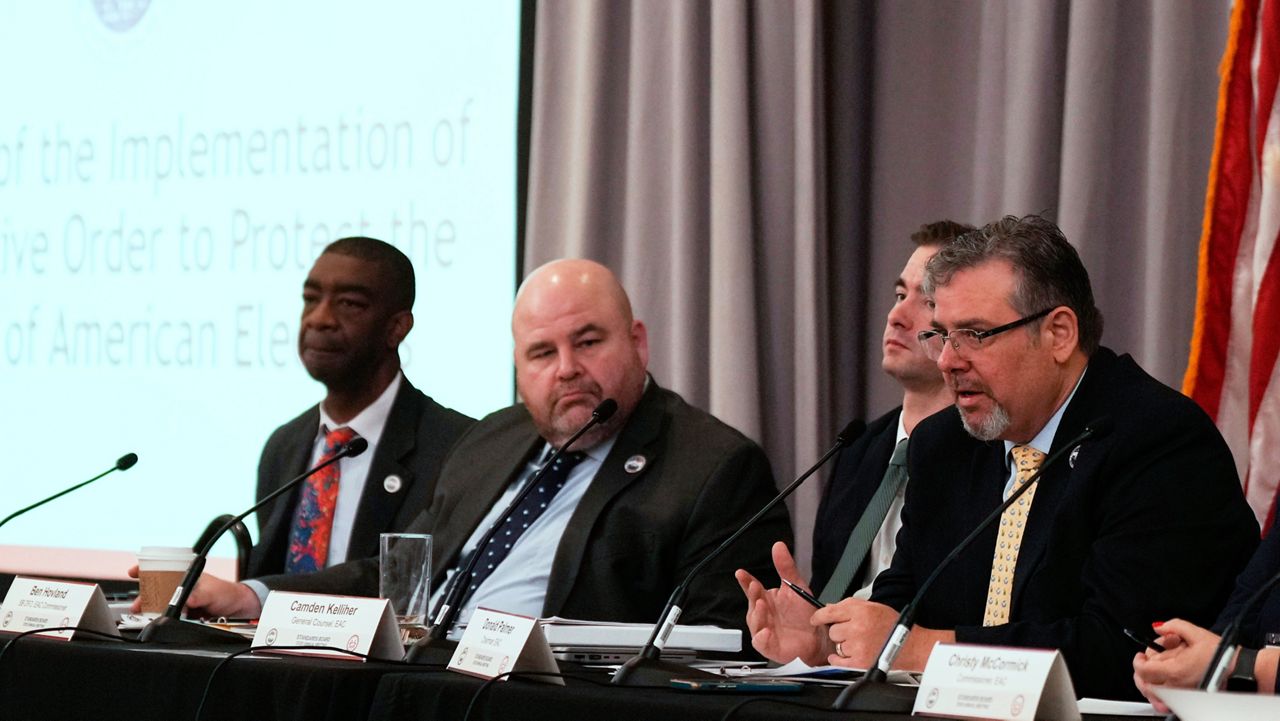LOS ANGELES, Calif. — It was only a month ago that Phoebe Valencia moved into her new apartment, a place to call home for the first time in six years.
Valencia said she gets emotional each time she opens the door.
“It’s such a huge difference compared to anywhere I’ve ever lived, and I mean anywhere,” she said.
Nearly a decade ago, Valencia lost her husband to gun violence.
“He was my home. My rock,” she said. “After losing him, I lost my stability.”
Years of trying to cope with that loss led to homelessness. She couldn’t keep a job, she said, and eventually couldn’t make her rent payments.
“I didn’t realize how much time passed just having to really be homeless because you don’t ever keep track of days out there. It’s just day and night,” she said.
Valencia said she slept in a stairwell of a parking garage in Koreatown most nights and later bounced from one interim shelter to another, often turning to Union Rescue Mission on Skid Row for help.
Eventually, Valencia visited the Los Angeles Housing Department website, where she saw an application for housing at an apartment in Hollywood funded by Measure ULA. She applied and was accepted.
She said this apartment has given her more than just a roof over her head. It has given her a second chance.
“It’s given me my life back. I can sleep a whole night without worrying. I have a safe space now that I can say belongs to me,” Valencia said.
Measure ULA, a real-estate tax that Los Angeles voters passed in 2022 to fund housing and homeless services, funded the construction of her new home.
Since going into effect, the tax has raised more than $632 million dollars, helped 11,000 tenants with rental assistance, funded 795 affordable homes, and created 10,000 union construction jobs.
However, a new study from UCLA’s Lewis Center for Regional Policy Studies has identified that the tax has some unintended consequences, too.
The study looked at four years of transaction data, analyzing over 300,000 sales, and found fewer sales above the tax threshold, meaning fewer new developments and a loss of future property tax revenue.
Another surprising impact, according to the study — the properties targeted by the tax.
“The tax does, in fact, fall on these high-end residential properties, but it also falls on commercial properties, industrial properties,” said Michael Manville, a professor of Urban Planning at the UCLA Luskin School of Public Affairs, who co-authored the report.
Manville said while the “mansion tax” should target sales of luxury homes, it’s also hitting commercial strip malls, multi-family apartment buildings, and more.
“An unintended effect has been that it’s sharply reduced the sale of these high-end sites by about 30% to 50%,” he said. “That’s a big problem for two reasons: the first reason is that these are the sites that are most often used after they’re sold to build new multi-family housing, which the City of Los Angeles badly needs more of.
The second reason is that if you have a tax that prevents some of these very high-valued parcels from being sold, you also deprive the city of future property tax revenue because the property stays at its lower assessment.”
The estimated loss in property tax revenue so far, Melville said, is $25 million. However, Melville warned lawmakers that the number will increase unless they reform the tax.
“People often think of measure ULA as being something that just raises revenue, and I think it’s important to know on the backside it’s costing revenue and if that isn’t reformed, it’s only going to grow over time,” he said.
That revenue helps pay for public services like schools, infrastructure and city budgets — something LA city officials said is already strained.
In a statement to Spectrum News, City Councilmember Nithya Raman, who championed Measure ULA, said in part:
“As the Chair of the Housing and Homelessness Committee, I am deeply grateful for ULA, which has been an unprecedented resource for housing construction and eviction defense at a time when we desperately need it. I look forward to engaging with the researchers to ensure that this much-needed resource is available to Los Angeles while addressing unintended consequences.”
Representatives for United to House LA, an organization that’s helped drive the campaign for the homelessness tax, said the study leaves out a key distinction: that most apartment buildings aren’t built to sell, meaning Measure ULA doesn’t apply to them.
Joe Donlin, director of United to House LA, shared this statement:
“Measure ULA is two years old... Its revenues have increased every quarter, and it has survived court challenges and a referendum attempt. Now that Trump and DOGE are cutting billions of affordable housing dollars, it’s the most important tool Los Angeles has to fight its housing crisis.”
The organization points to individuals like Valencia as proof of what Measure ULA can accomplish.
“I know we need more buildings like this — to be able to have the opportunity for affordable housing,” Valencia said.
Now, she’s hoping the tax can offer others a clean slate, too. The same one that she says changed her life.











